Are We Slave to Our Wants?

Are you a slave to your wants? Do you work only to pay your mortgage and your bills? Are you one among those who love to say “Thank God it’s Friday”? Or even on Thursdays “Happy Friday Eve”? Literary I learned these interesting phrases when I moved to the US. I had never heard about these phrases back in India where I lived most of my life or even in China where lived for a short stint. Or you work to buy a fancy material possession like an expensive sports car or a boat? Then the question arises: are we slave to our wants? If you take a job just for the money, most likely, you are a slave to your wants. Does this surprise you? Let’s deep dive into this topic in this post.
“I think the person who takes a job in order to live – that is to say, for the money – has turned himself into a slave.”
~ Joseph Campbell
Contents
Related Posts on Are We Slave to Our Wants?
- How Greed for Money Stems from Materialism
- Why Think Before You Buy Stuffs?
- Is Minimalism a Solution for Sustainability?
- How to Break the Circle of Money
- How Much Money You Need to Live a Fulfilled Life?
- 6 Conditions for Happiness Even Being Poor
- How to Lead a Minimalist Life
- 10 Drivers For Finding Fulfillment in Life
- How Gratitude Helps Find Inner Peace
- Pursue Your Calling Or Money?
Are We Slave to Our Wants?
Yes, we are. My wife and I recently had been mulling over buying a house in the US. We still have our apartments in India rented out. But the lure of buying a house in the US was really overwhelming. From friends and close acquaintances, there were repeated enquiries on when we are buying the house, so the pressure was truly on.
We had initially decided not to buy any more property since we have ours back in India, which is fully paid off. With no mortgages, we are debt free completely and wanted to continue like this. But the enticement of buying a beautiful house in the US was too strong and then we embarked on the journey of house hunting. I wanted to buy it all in cash so that I don’t have to take any mortgage. But then something else happened: we had to cancel the contract in a week’s time since the somehow we got into the trap of dealing with a shady builder. The house was yet to be constructed, and the builder misguided us on the square footage of the heated area.
This episode helped to reinstate my belief that I should avoid falling into the temptation of buying a house again. All the cash that I was planning to dump into this house stays in financial assets. That is available cash to milk when needed. It provides a lot of financial security that I would have otherwise lost. Then again, get into the circle of money to earn more and then save.
Why We Are Slave to Our Wants?
Then the question is why are we slaves to our wants? As per Wikipedia, “In economics, a want is something that is desired. Wants are often distinguished from needs. A need is something that is necessary for survival (such as food and shelter), whereas a want is simply something that a person would like to have.”
Does this sound familiar? Thus, we are slave to our wants because we cannot resist the temptation to give in to our desires. But why do we fall into these temptations again and again? Sometimes we can afford to buy stuffs we want and sometimes we don’t.
Then should we buy stuffs even if we can afford? Is life all about making a collection of our “want” trophies? As if accumulating these trophies is the purpose of our lives.
The list can go on and on. A plush house. An expensive sports car. House decor. Exhibits.
The question that arises: is the purpose of life to buy and accumulate stuffs? When we are in our death-beds, shall we feel proud of all these things that we have bought? Then die in peace, relishing that we have lived a fulfilled life? Are we even going to take these earthly possessions with us in heaven or hell wherever we go after death?
Then comes the scenario when we cannot afford to buy all the stuffs we want. So what do we do? We have a credit cards come in handy, then we have a readily available mortgage. Eventually, where do we go with all this? We fall into the trap and become slaves to the stuffs that we have bought? Repay the debt and then spend more to maintain and upkeep these possessions. In terms of insurance, maintenance, renting storage, etc.
What Are the Repercussions of Excessive Wants?
Is It Sustainable?
These excessive wants drives the insatiable consumerism. As per The World Counts, we need 1.8 number of planet Earth to provide resources and absorb our wastes. By 2030, we will need 2 planets, but we have only 1. Thus, is today’s consumerism sustainable?
Is It Ethical?
Did you ever realize how the world of fast fashion sources the latest trendy clothes so fast at such low costs? If we try to trace back the sources of these clothes, we might learn something that is appalling. In the chain, there are sweatshops with utterly low pay involved. Exploiting the vulnerability and poverty of people in undeveloped, developing, and even developed worlds. It is cheaper to discharge the chemicals used in the dies used in these clothes into the water or land bodies where environmental regulations are strong enough. If you want to make money, there is always a way out. Ethical or not.
Slave to Our Wants
Finally, we become slave to our wants. Now we have to work more to payback for what we have bought. Work double and triple shifts. Why do Americans stress the most over money? Research Thriving Wallet by Discover® and Thrive Global shows that 90% of Americans stress the most over money. Financial stress is the number one stressor for most of the Americans.
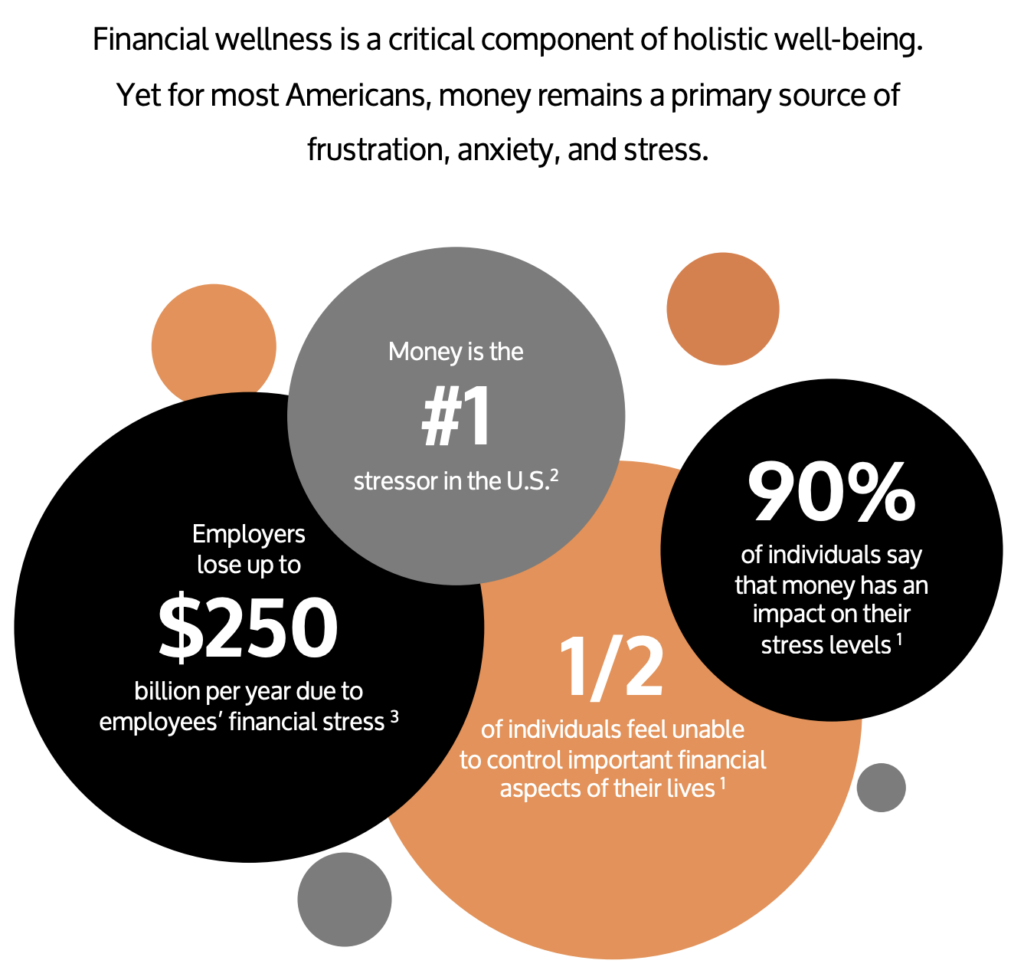
The Gen X in the age group of 41-56 years are by far the highest stressed group, followed by the Boomers (57-75 ye4ars) and then the Millennials (25-40 years).
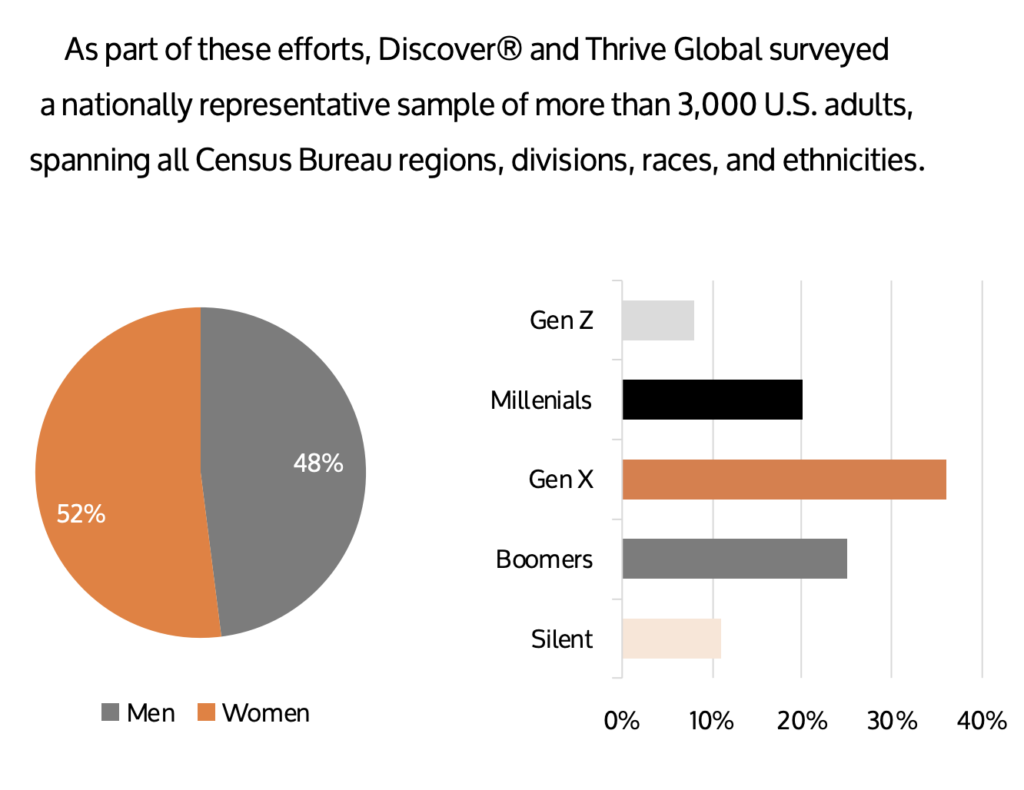
This research also shows that retiring, buying a house and purchasing a car are the top reasons for financial stress.
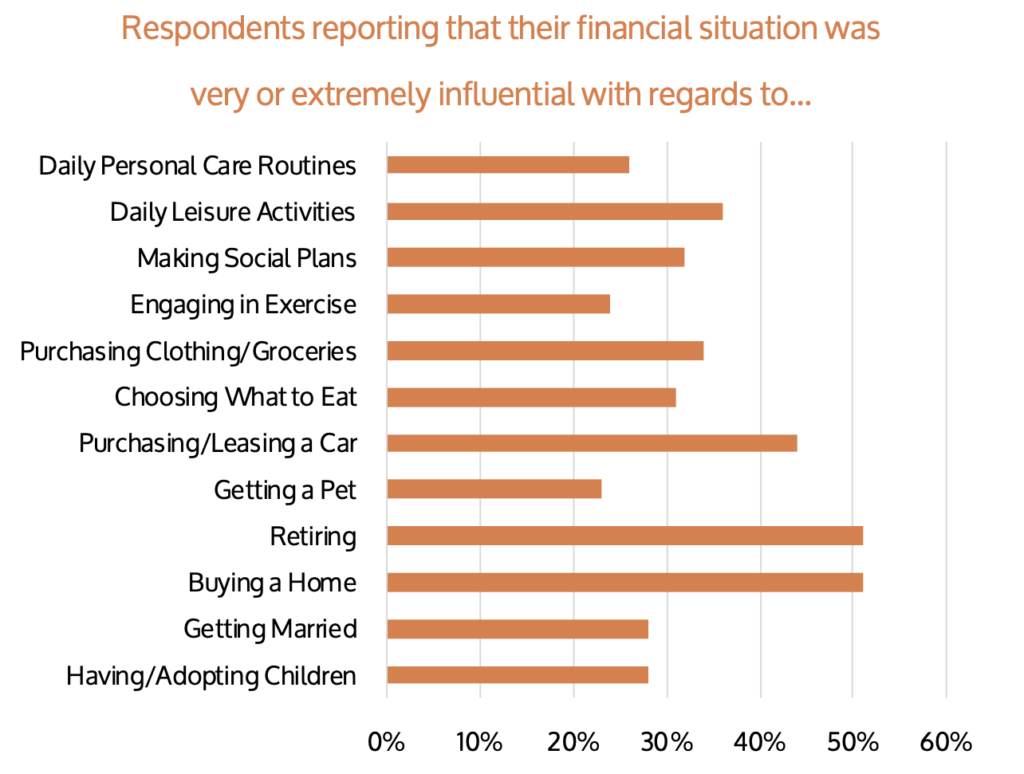
Further, inevitably there are affects to health because of this financial stress.
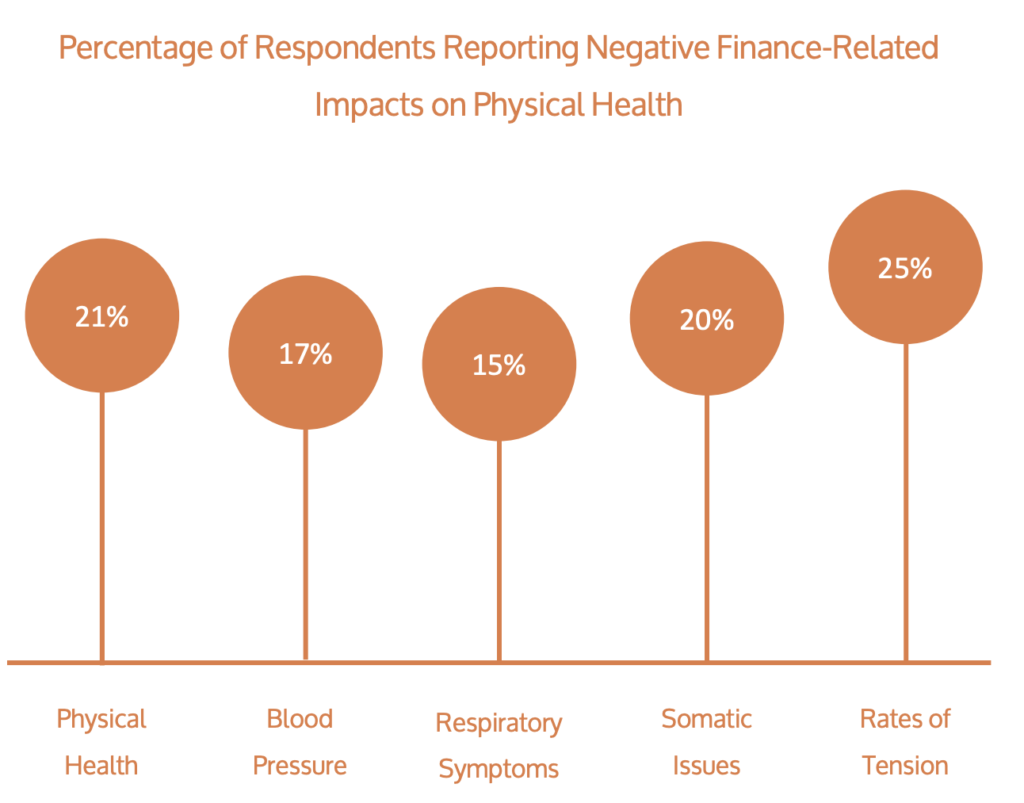
With 34% of individuals having sleep issues and 25% experiencing symptoms including nightmares, insomnia and fatigue on waking. Then are all these issues avoidable? Do we need to satisfy our wants at the cost of our health? Don’t we say health is wealth? Then why do we hanker over material possessions? Do they truly give us happiness over the longer run, or are they mere sources of instant gratification?
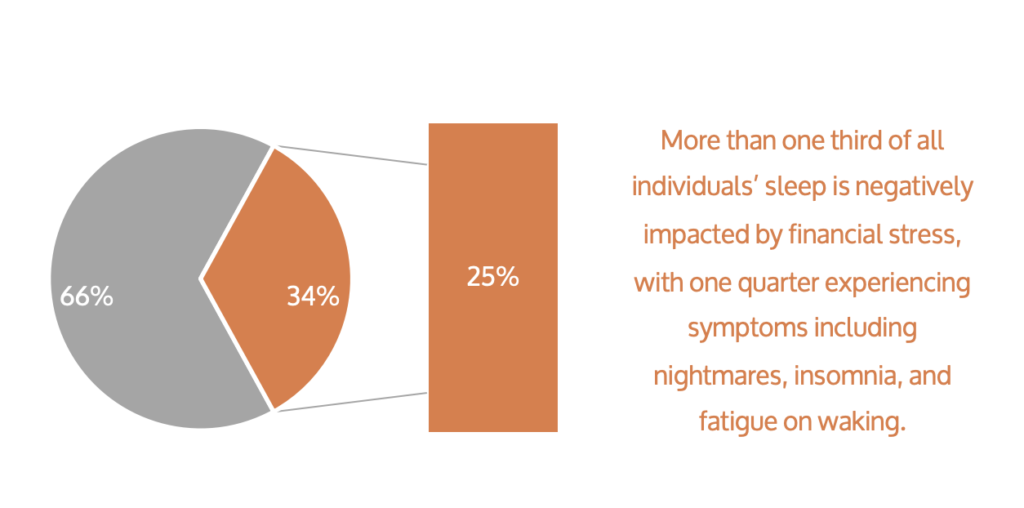
How to Break Free?
Then we get into the question, can we break free from this circle of money? Can we break free from being slaves to our wants? The answer is simple. If want to we can. But unfortunately, most of us don’t really want to break free from our slavery. We have enslaved ourselves in our slavery. Does that sound outrageous? It might, but mostly it is true.
What it essentially takes is discovering your purpose in life. Is your purpose in life amassing these material possessions? Or spending for instant gratification? What is the gift you are born with? Or what is the skill that you have honed throughout these years? Something that you can call your passion or calling? The calling that you can use helping others in this world. We all have a purpose in our lives. It is all about trying to find it. Then leveraging it to serve others in whatever capacity we can. Because there is no greater happiness or satisfaction that we can get by helping others. Something that is much bigger than the instant gratifications from buying stuffs we want or have yearned forever.
This might sound utopian and self-less. But are we not supposed to be selfish? We live in an individualistic world, at least in America. Then why do we need to think about collectivism or think about others? Is it not all about our wants and our pleasures? Why care about others? Is that what America is not all about? The epitome of global consumerism? But that most Americans miss that this excessive consumerism driven by our insatiable wants is affecting us badly. Even if we don’t want to think about how the materialism is adversely affecting others and the planet, more so it is enslaving us. Would you agree?
Conclusion on Are We Slave to Our Wants?
Finally, the question still on the table is are we slave to our wants? Yes, we are. We don’t need to become monks or ascetics to relinquish all our wants. We still live in a materialistic world. But is there anyway we first realize that we slave to our wants? Now then the question comes whether we want to break free. That is going to be our choice. These excessive wants drives the insatiable consumerism. We need 1.8 number of planet Earth to provide resources and absorb our wastes. But we have only 1. Then is today’s consumerism sustainable?

Leave a Reply
You must be logged in to post a comment.